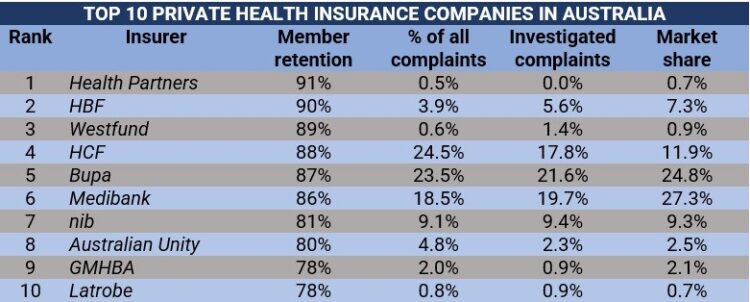
Do you have to get health insurance? It’s a question that many people ask, and the answer depends on where you live. In some countries, health insurance is mandatory, while in others, it’s optional. This article explores the legal requirements, financial considerations, and health benefits associated with health insurance, providing insights into its impact on individuals, families, and the overall healthcare system.
Understanding the legal landscape surrounding health insurance is crucial. Some countries have mandatory health insurance programs, requiring all citizens to enroll. This often involves penalties for non-compliance. In other countries, health insurance is optional, leaving individuals to make their own choices. However, even in these cases, financial considerations often make health insurance a necessity, especially considering the potential for unexpected medical expenses.
The Legal Landscape

The legal landscape surrounding health insurance varies significantly across the globe. Some countries have mandatory health insurance programs, while others rely on a mix of private and public options. Understanding these legal requirements is crucial for individuals and employers alike.
Mandatory Health Insurance Programs, Do you have to get health insurance
Many countries have implemented mandatory health insurance programs to ensure universal access to healthcare. These programs typically require all citizens and residents to contribute to a national health fund, either through payroll deductions or direct payments.
- Canada: Canada operates a universal healthcare system funded through taxes. All residents are eligible for publicly funded healthcare, regardless of their employment status or income.
- France: France’s healthcare system is based on a mandatory social insurance scheme. Individuals and employers contribute to the national health insurance fund, providing access to a wide range of medical services.
- Germany: Germany’s healthcare system is a mix of public and private insurance. Statutory health insurance (SHI) is mandatory for most residents, while private health insurance is available for those with higher incomes.
- Switzerland: Switzerland’s healthcare system is based on mandatory health insurance, with a choice of private insurance companies. Residents are required to purchase basic health insurance, which covers essential medical services.
Penalties for Not Having Health Insurance
Countries with mandatory health insurance programs typically impose penalties on individuals who fail to comply. These penalties can range from fines to denial of certain benefits.
- United States: The Affordable Care Act (ACA) requires most individuals to have health insurance. Individuals without health insurance may face a penalty, known as the individual shared responsibility payment.
- Australia: Australia’s Medicare system provides universal healthcare coverage. While Medicare is free at the point of service, individuals who do not have Medicare may face higher healthcare costs.
- United Kingdom: The UK’s National Health Service (NHS) provides universal healthcare coverage. While there is no legal requirement to have private health insurance, individuals may choose to do so for faster access to certain services.
Health Benefits and Coverage

Health insurance provides financial protection against the high costs of medical care. It acts as a safety net, covering a wide range of medical services and treatments, thus ensuring individuals can access necessary healthcare without facing financial hardship.
Types of Medical Services Covered
Health insurance typically covers a wide range of medical services, including:
- Preventive care: This includes routine checkups, screenings, and immunizations to prevent diseases and maintain good health. Examples include annual physical exams, mammograms, and flu shots.
- Inpatient care: This covers hospitalization, surgery, and other medical services received while admitted to a hospital. This includes overnight stays, surgeries, and intensive care.
- Outpatient care: This covers medical services received outside of a hospital setting, such as doctor’s visits, specialist consultations, and diagnostic tests. Examples include visits to a primary care physician, consultations with a cardiologist, and blood tests.
- Prescription drugs: Health insurance often covers the cost of prescription medications, with varying levels of coverage depending on the plan. This includes medications for chronic conditions like diabetes and high blood pressure, as well as medications for acute illnesses.
- Mental health and substance abuse treatment: Many health insurance plans cover mental health services, including therapy, counseling, and medication. This includes treatment for depression, anxiety, and addiction.
- Rehabilitation services: This covers services like physical therapy, occupational therapy, and speech therapy to help individuals recover from injuries or illnesses. This includes treatment for stroke victims, individuals with spinal cord injuries, and people with disabilities.
Types of Health Insurance Plans
Health insurance plans vary in their coverage and costs. Here are some common types:
- Health Maintenance Organization (HMO): HMO plans typically have lower premiums but require you to choose a primary care physician (PCP) within the network. You need a referral from your PCP to see specialists or receive other services. This type of plan emphasizes preventive care and often includes a co-pay for each visit.
- Preferred Provider Organization (PPO): PPO plans offer more flexibility in choosing providers. You can see any doctor or specialist, but you’ll pay a lower co-pay if you choose a provider within the network. This plan generally has higher premiums than HMO plans.
- Exclusive Provider Organization (EPO): EPO plans are similar to HMO plans, but they allow you to see specialists without a referral. However, you are limited to using providers within the network. This type of plan often has lower premiums than PPO plans.
- Point-of-Service (POS): POS plans combine features of HMO and PPO plans. You choose a PCP, but you can also see out-of-network providers for a higher co-pay. This plan provides a balance between cost and flexibility.
- High Deductible Health Plan (HDHP): HDHP plans have a higher deductible than other plans, meaning you pay more out-of-pocket before insurance coverage kicks in. However, they typically have lower premiums. These plans are often paired with a Health Savings Account (HSA), which allows you to save pre-tax money for healthcare expenses.
Specific Medical Conditions and Treatments Covered
Health insurance plans typically cover a wide range of medical conditions and treatments. Some examples include:
- Chronic diseases: Many plans cover treatment for chronic conditions such as diabetes, heart disease, asthma, and arthritis. This includes medications, doctor’s visits, and other necessary services.
- Cancer treatment: Health insurance plans typically cover a wide range of cancer treatments, including surgery, chemotherapy, radiation therapy, and immunotherapy.
- Mental health conditions: Many plans cover mental health treatment, including therapy, counseling, and medication. This includes treatment for depression, anxiety, and other mental health conditions.
- Pregnancy and childbirth: Most health insurance plans cover prenatal care, labor and delivery, and postpartum care.
- Emergency medical care: Health insurance plans typically cover emergency room visits and other emergency medical services.
The Impact on Individuals and Families
Health insurance plays a significant role in shaping the financial well-being and healthcare access of individuals and families. It can act as a financial safety net, protecting against catastrophic medical expenses and enabling individuals to access necessary medical care.
Impact on Financial Security
Health insurance can significantly impact an individual’s financial security by mitigating the risk of high medical bills. Without health insurance, individuals face the possibility of substantial out-of-pocket expenses for unexpected illnesses or injuries, potentially leading to financial hardship, debt, or even bankruptcy.
For instance, a serious accident or illness without health insurance could result in tens of thousands of dollars in medical bills, putting a significant strain on an individual’s finances.
Health insurance helps individuals manage these risks by providing coverage for a portion or all of their medical expenses, reducing the financial burden associated with healthcare.
Final Review: Do You Have To Get Health Insurance

Navigating the world of health insurance can be complex, but it’s essential to understand your options and make informed decisions. Whether you’re exploring mandatory programs, weighing financial implications, or seeking alternative solutions, understanding the nuances of health insurance is crucial for securing your well-being and financial security. By considering the legal requirements, financial implications, health benefits, and alternative options, you can make choices that align with your individual needs and circumstances.
Commonly Asked Questions
What are the main types of health insurance plans?
Common types of health insurance plans include HMOs, PPOs, and POS plans. Each plan offers different levels of coverage, networks, and costs.
How can I find affordable health insurance?
Several resources can help you find affordable health insurance, including government marketplaces, insurance brokers, and online comparison websites.
What are the benefits of having health insurance?
Health insurance provides financial protection against unexpected medical expenses, access to a wider range of healthcare services, and peace of mind knowing you have coverage in case of illness or injury.





